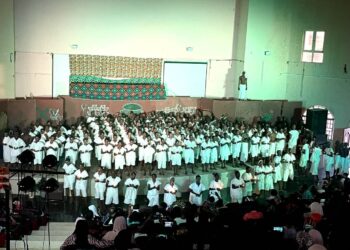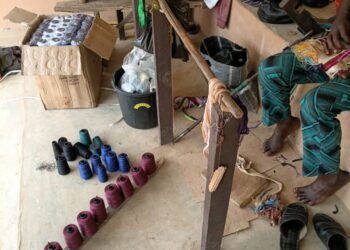By Fémí Emmanuel
The celebration of excellence is a testament to worthy stewardship and an unwavering commitment to national growth. Retired Major General Oladayo Popoola stands as a shining embodiment of this excellence—a man whose life and career reflect dedication, patriotism, and outstanding service to Nigeria.

Born on February 26 in Isale Ora, Ogbomoso, Oyo State, Nigeria, Major General Popoola hails from a family known for its intellectual strength and courage—qualities that shaped his character and guided his journey. He was enlisted into the Nigerian Army through the Nigerian Defence Academy (NDA) in 1967.
As a young officer in the elite Brigade of Guards, he was charged with the crucial responsibility of securing the seat of the federal administration in Lagos. This role highlighted not only his military competence but also his innate leadership, setting him apart from his contemporaries. His performance reflected a man whose service transcended the uniform—he was a soldier of exceptional quality and a dedicated servant of the Nigerian state.
In 1968, he was deployed on national assignment to Asaba in the then Midwestern State (now Delta State), a mission that showcased his bravery and deep commitment to Nigeria’s unity. From 1971 to 1975, he served as an instructor at the Nigerian Military Training College (NMTC) in Zaria, further proving his competence and devotion to building the next generation of military leaders.
In 1974, his military journey took him to India for a Battalion Support Weapons Course, and in 1976, he received further training at the Royal Army Records Office in Stanmore, England. He also attended the prestigious Army Command and Staff College (ACSC) from 1977 to 1978—a preparatory phase that paved the way for his elevation through the ranks.
By the mid-1980s, his consistent excellence earned him promotion to the rank of Lieutenant Colonel. He served in Port Harcourt, Yola, and later in Kaduna. In 1986, he was appointed Director of Personnel Services at Army Headquarters under the Adjutant General’s office, a position that demonstrated the military’s confidence in his administrative abilities.
In 1990, he attended the National Institute for Policy and Strategic Studies (NIPSS), Kuru, Jos—an elite institution for Nigeria’s top policy thinkers and strategists. He returned to Army Headquarters in 1991 to serve in the Manpower Planning Department, consolidating his role as a critical planner and administrator in the military.
His leadership prowess also saw him serve as Military Governor of Oyo State from January 1984 to August 1985, and subsequently as Military Governor of Ogun State from August 1985 to 1986. During his tenure, he initiated a proposal for a housing scheme aimed at providing shelter for officers and men who had selflessly defended the nation. This visionary plan was later embraced by General Sani Abacha and other paramilitary institutions across the country.
Major General Popoola continued to serve in high command roles. In 1994, he was appointed Chief Administrative Officer, and from 1997 to 1998, he served as Chief of Logistics. He also held the position of General Officer Commanding (GOC) of the 82 Division and was a member of the Provisional Ruling Council (PRC)—the highest policy and administrative organ in the Nigerian military at the time.
In recognition of his steadfast dedication and invaluable service to Nigeria, Major General Oladayo Popoola (Rtd) was honoured in April 2022 with the national award of Officer of the Order of the Federal Republic (OFR) by the Nigerian government.
You can get every of our news as soon as they drop on WhatsApp ...To get all news updates, Join our WhatsApp Group (Click Here)












